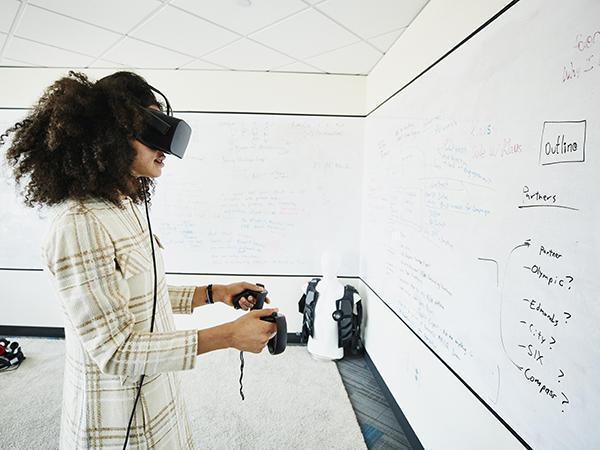Two years ago, every person had to completely adapt their way of life, and every business had to rethink how their operations were run. But with the world still grappling with change and disruption, telcos recognize their opportunity—and responsibility—to drive positive change.
During the first keynote of MWC 22, executives from the GSMA, Vodafone, Telefónica, Telia Company and more shared why the telecom industry is future-ready—and already making a difference in lives of people around the world.
HOW TELCOS ARE MAKING AN IMPACT
The telco industry connects billions of people worldwide, with 5G enabling even more high-speed, large-scale connections. But not everyone has the same access, explained GSMA Director General Mats Granryd.
Over 3.2 billion people aren’t using mobile internet despite living in an area with coverage, with an additional 450 million living in areas without coverage. While an additional 1.4 billion people have been covered by mobile broadband, the usage gap still remains.
“Affordability, skills, lack of content are all really important factors [contributing to this gap],” said Granryd, adding gender was also a factor. He urged public and private partners to invest in the same level as the mobile industry to reduce the usage gap.
With more accessible connectivity, telcos can also make a positive social impact with connectivity, telcos can make a positive environmental impact. Allison Kirkby, President and CEO of Telia Company, shared real-life examples like optimizing power grid usage with energy monitoring, and tracking vehicles and bikes to see how effective new bike lanes are.
But there’s still a ways to go with intelligent connectivity—for example, only 1% of factories are using connected technology today.
“We don’t need to wait,” said Granryd. “These technologies already exist today, but they are still very, very underused by energy-intensive industries.”
CREATING A BETTER FUTURE FOR ALL
During his portion of the keynote, Telefónica Chairman and CEO José María Álvarez-Pallete called attention to the varying states of conflict in the world, whether it was between East and West, truth and fake news, or privacy and free services.
This conflict can take a personal toll, per Álvarez-Pallete.
“Our society has lost its optimism,” said the Telefónica CEO. “Many of our citizens think that technological progress will destroy their jobs; erode their freedoms and impose values that they consider alien.”
While technology can and has been used for good, like helping people live longer lives and reduce poverty, it does not have moral underpinnings, and it’s up to companies like telcos to use it in an ethical, positive manner.
“We must create an environment that delivers value to all, that allows everyone to obtain a fair return,” said Álvarez-Pallete. “We are asking for a framework that protects all digital citizens.”
Álvarez-Pallete termed this “hypersector collaboration,” wherein all public and private players of the new economy are respected, with equal terms for competition.
“I know that we will not move forward if we do not rewrite the social contract between science, business and society,” Álvarez-Pallete. “I also know that we can do it…and that’s the great innovation that can restore the bridge between material and ethical progress.”
A GLIMPSE OF THE FUTURE
Public and private partnerships for societal good are already happening, even within the telco industry itself. Telcos will need to collaborate to stay globally competitive, said Nick Read, CEO of Vodafone.
“Open RAN is a great example of sector collaboration, and how we need to think like global challengers,” said Read. He referred to the Memorandum of Understanding (MoU) that European operators signed to create interoperable systems, calling it a “blueprint for future collaboration.”
Telia’s Kirkby also highlighted the need for trusted ecosystems and partnerships. For example, Telia is working with the Swedish Civil Contingencies Agency to provide access to Telia networks for emergency services, with benefits for health and safety.
“Imagine the real-life impact that a drone or unmanned device can have, for example, in fire rescue operations,” said Kirkby.
These changes will require massive capex—for instance, telcos are expected to invest over $900 billion over the next four years. But the speakers were optimistic about telcos’ ability to make change, now and in the future.
“As responsible leaders, we have much to do,” said Granryd, addressing the room. “But no industry is better prepared than ours.”

